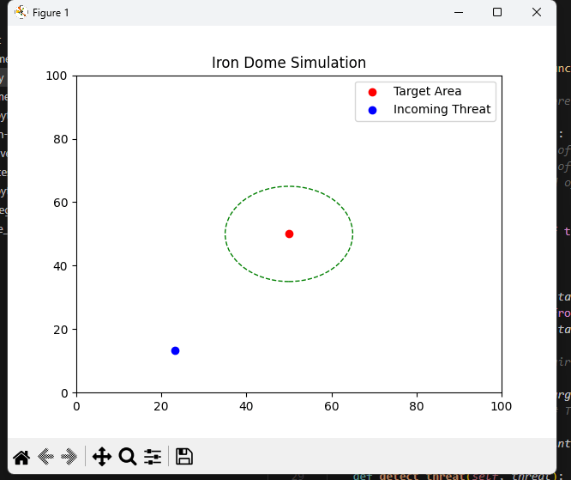Transformation:
The rise of Artificial Intelligence (AI) marks a transformative era, affecting nearly every aspect of society and industry.Artificial Intelligence (AI) is revolutionizing industries across the globe, creating opportunities and challenges that are reshaping the business landscape. Here’s a look at how AI is transforming various sectors:
1. Healthcare
AI is driving significant advancements in healthcare through:
- Diagnostics and Imaging: AI algorithms can analyze medical images (like X-rays, MRIs, CT) with high precision, assisting radiologists in detecting abnormalities and diseases earlier.
- Drug Discovery: AI facilitates drug development through target identification, lead compound optimization, drug design, drug repurposing, and clinical trial enhancement.
- Personalized Medicine: AI algorithms can process extensive patient data, including genetic information, medical records, and lifestyle factors, to create personalized treatment plans.
2. Finance
In the financial sector, AI is enhancing efficiency and security:
- Fraud Detection: AI fraud detection is an artificial intelligence use case that employs to analyze large datasets containing information about transactions . These fraud detection algorithms are designed to recognize patterns and identify discrepancies that indicate fraudulent activity.
- Algorithmic Trading: AI algorithms analyze vast datasets, learn from patterns, and make data-driven decisions to optimize trading strategies.
- Customer Service: AI in customer service refers to the use of artificial intelligence systems to enhance the customer experience and aid the agent workflow. Using AI in customer service enables support teams to work more efficiently (and therefore be more productive) and provide better customer support.
3. Retail
AI can help retailers make data-backed decisions by supplying accurate forecasts and predictions.AI is transforming retail by personalizing the shopping experience and optimizing operations:
- Personalized Recommendations: AI, particularly in the form of generative AI, plays a pivotal role in the creation and delivery of personalized recommendations. GenAI algorithms analyze patterns in user behavior, demographic information, and purchase history to generate recommendations that are not only relevant but also highly personalized.
- Inventory Management: AI uses real-time data to instantly forecast inventory requirements, reducing reliance on traditional methods that are time-consuming and prone to human error. AI-powered demand forecasting improves accuracy and reduces supply chain errors, leading to optimized inventory replenishment plans.
- Customer Service: Chatbots and virtual assistants help customers find products, answer questions, and resolve issues efficiently.
4. Manufacturing
In manufacturing, AI is improving production processes and efficiency:
- Predictive Maintenance: AI-driven predictive maintenance improves operational efficiency by optimizing maintenance schedules and resource allocation. Analyzing real-time data and predictive analytics allows AI algorithms to prioritize tasks and allocate resources more effectively.
- Quality Control: AI-powered visual inspection systems detect defects and ensure products meet quality standards.
- Supply Chain Optimization: AI helps manage and optimize supply chains by predicting demand, managing inventory, and streamlining logistics.
5. Transportation
AI is making transportation smarter and more efficient:
- Autonomous Vehicles: AI technologies power self-driving car systems. Developers of self-driving cars use vast amounts of data from image recognition systems, along with machine learning and neural networks, to build systems that can drive autonomously.
- Traffic Management: AI systems analyze traffic patterns to optimize traffic flow and reduce congestion in urban areas.
- Route Optimization: By analyzing vast amounts of data and continuously learning, AI can predict traffic conditions, weather impacts, and other variables to optimize routes in real-time. This leads to faster deliveries and lower fuel consumption, saving businesses a considerable amount in operational costs.
6. Education
In education, AI is enhancing learning experiences and administrative efficiency:
- Personalized Learning: AI endeavors to tailor educational content and interactions to resonate with individual learners' unique needs, preferences, and pace
- Administrative Automation: AI streamlines administrative tasks like grading and scheduling, allowing educators to focus more on teaching.
- Virtual Tutors: AI tutors may examine a student's performance statistics and modify the educational content to their strengths and weaknesses. If a student is struggling with a certain idea, they can be given further practice tasks and explanations until they understand.
7. Entertainment
AI is transforming the entertainment industry by enhancing content creation and consumption:
- Content Recommendations: Streaming platforms use AI to suggest movies, music, and shows based on user preferences and viewing history.
- Creative AI: AI tools assist in generating music, writing scripts, and even creating visual art, expanding creative possibilities.
- Audience Analytics: AI analyzes viewer data to help producers understand audience preferences and tailor content accordingly.
8. Challenges and Considerations
While AI brings many benefits, it also presents challenges:
- Ethical Concerns: This means taking a safe, secure, humane, and environmentally friendly approach to AI. A strong AI code of ethics can include avoiding bias, ensuring privacy of users and their data, and mitigating environmental risks.
- Security: AI systems can be vulnerable to cyberattacks and misuse, necessitating robust security measures.
- Regulation: Developing effective regulations to manage the use of AI and ensure it is used responsibly is an ongoing challenge.
Conclusion
The rise of Artificial Intelligence represents one of the most transformative shifts in modern history, impacting nearly every facet of our lives and industries. From revolutionizing healthcare and finance to reshaping retail, manufacturing, and entertainment, AI's capabilities are continually expanding, driven by advancements in machine learning, deep learning, natural language processing, and more.

_0qADA.png)

.png)


.png)

0 Comments
Like 0